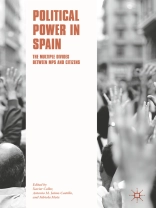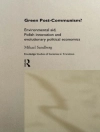This book explores why some people become politicians, how they represent citizens in parliaments, and what they think about democracy and its institutions. It analyses the results of the first survey of a representative sample of Spanish MPs (580 cases) and citizens. The study covers areas such as: social profiles; recruitment and selection; women in parliaments; motivation for politics; perception of the representative function and how this is affected by corruption, disaffection and mistrust; national and regional identities; ideology; the functioning of parliamentary groups, and perceptions about the EU. The case of Spain is used to demonstrate how MPs’ values, opinions and attitudes conflict and complement with those of the citizens they are supposed to represent. Through a systematic comparison between MPs and citizens, the contributions deal with topics that are key to understanding how democracies work and the role played by MPs.
Table des matières
Chapter 1. The need for the study of parliamentarians in Spain; Xavier Coller, Antonio M. Jaime-Castillo and Fabiola Mota.- Chapter 2. The composition of Spanish parliaments: what are the MPs like?; Inmaculada Serrano and Sandra Bermúdez.- Chapter 3. Gender and parliament: the impact of the political presence of women; Tània Verge, Amparo Novo, Isabel Diz and Marta Lois.- Chapter 4. Political socialization and motivation; Carol Galais.- Chapter 5. Recruitment and selection; Xavier Coller, Guillermo Cordero, José M. Echavarren .- Chapter 6. Professionalization and parliamentary careers; Robert Liñeira, Jordi Muñoz.- Chapter 7. Parliamentary groups and institutional context; Antonio M. Jaime-Castillo, Gloria Martínez-Cousinou.- Chapter 8. Parliamentary political representation; Fabiola Mota Consejero.- Chapter 9. Political Disaffection; Antonio M. Jaime-Castillo, Edurne Bartolomé, Gloria Martínez-Cousinou.-Chapter 10. National and regional identity; Xavier Coller, Guillermo Cordero, José M. Echavarren.- Chapter 11. National Identity and Political Representation: Rival ‘Top-Down’ National Projects; Enric Martínez Herrera, Thomas Jeffrey Miley.- Chapter 12. Ideology: The Reasons Behind Placement on the Left-Right Scale; Leonardo Sánchez Ferrer.- Chapter 13. The organisation of Spain. Ideology, territory and representation in the State of Autonomies; Sandra León, Fabiola Mota, Mayte Salvador.- Chapter 14. MPs representing nationalist and regionalist parties; Santiago Pérez-Nievas, Edurne Bartolomé.- Chapter 15. Parliaments and the European Union; Juan Antonio Mayoral Díaz-Asensio, Ana Carrillo López, Jean-Baptiste Harguindéguy.- Chapter 16. The Distant Politician?; Xavier Coller, Antonio M. Jaime-Castillo, Fabiola Mota.
A propos de l’auteur
Xavier Coller is Professor of Sociology at the Universidad Pablo de Olavide, Spain, and director of the research group Democracy and Autonomies: Society and Politics. He has authored over ninety works on social theories, research methods, collective identities, political elites, and complex organizations.
Antonio M. Jaime-Castillo is Associate Professor of Sociology at the Universidad de Málaga, Spain. His research interests include welfare attitudes, inequality, political sociology and quantitative methods of comparative research, and his work has been published in journals such as American Behavioral Scientist, European Sociological Review and Journal of European Social Policy.
Fabiola Mota is Associate Professor of Political Science at the Universidad Autónoma de Madrid, Spain. Previously she has taught and researched in several academic and scientific institutions in Spain where she has conducted studies and published on socialcapital, political participation and civil society, territorial politics and devolution.












